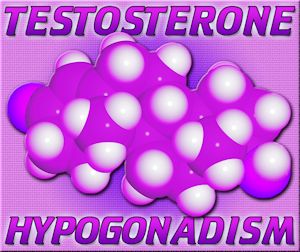Introduction
The intricate relationship between urological and musculoskeletal health is an emerging area of interest, particularly among American men. This article delves into the connections between these two domains, shedding light on how conditions in one can influence the other, and providing insights into managing and maintaining health in both areas.
The Urological-Musculoskeletal Connection
Urological health encompasses the urinary system and male reproductive organs, while musculoskeletal health involves the bones, muscles, and joints. Recent studies have highlighted a significant link between these two systems, especially in conditions such as chronic prostatitis and lower back pain. For instance, men suffering from chronic prostatitis often report concurrent musculoskeletal issues, suggesting a possible overlap in the underlying pathology.
Chronic Prostatitis and Lower Back Pain
Chronic prostatitis, an inflammation of the prostate gland, is a common urological condition that can lead to a range of symptoms, including pelvic pain and urinary difficulties. Intriguingly, many men with this condition also experience lower back pain, a prevalent musculoskeletal issue. The exact mechanisms behind this association are not fully understood, but theories suggest that nerve pathways and inflammatory processes may play a role. The shared innervation of the prostate and lower back could mean that inflammation in one area triggers pain in the other.
Impact of Musculoskeletal Health on Urological Function
Musculoskeletal conditions can also impact urological function. For example, pelvic floor dysfunction, which involves the muscles supporting the bladder and other pelvic organs, can lead to urinary incontinence and other urological issues. Strengthening these muscles through targeted exercises, such as Kegels, can improve both musculoskeletal and urological health.
The Role of Lifestyle in Managing Both Systems
Lifestyle factors play a crucial role in maintaining both urological and musculoskeletal health. Regular physical activity, a balanced diet, and maintaining a healthy weight can significantly reduce the risk of developing conditions in either system. For instance, obesity is a known risk factor for both lower back pain and urological issues like benign prostatic hyperplasia (BPH). Engaging in regular exercise, particularly activities that strengthen the core and pelvic floor, can help mitigate these risks.
Diagnostic and Treatment Approaches
Diagnosing conditions that affect both urological and musculoskeletal health requires a multidisciplinary approach. Physicians may use a combination of imaging studies, such as MRI scans, and functional tests, like urodynamics, to assess the extent of the problem. Treatment strategies often involve a combination of medications, physical therapy, and lifestyle modifications. For example, anti-inflammatory drugs may be used to manage both prostatitis and associated back pain, while physical therapy can help alleviate pelvic floor dysfunction.
Preventive Measures and Regular Check-ups
Preventive measures are essential in maintaining the health of both systems. Regular check-ups with a urologist and a musculoskeletal specialist can help detect early signs of issues, allowing for timely intervention. Men should be proactive about their health, discussing any symptoms or concerns with their healthcare providers.
Conclusion
The link between urological and musculoskeletal health is a critical consideration for American men. Understanding this connection can lead to better management and prevention of conditions affecting both systems. By adopting a holistic approach to health, including regular exercise, a healthy diet, and routine medical check-ups, men can enhance their overall well-being and quality of life. As research continues to unravel the complexities of these interconnected systems, it is essential for men to stay informed and engaged in their health journey.
Contact Us Today For A Free Consultation

- Urological Health Guide: Proactive Care and Common Conditions for American Men [Last Updated On: March 9th, 2025] [Originally Added On: March 9th, 2025]
- Urological Health Guide for American Men: Symptoms, Conditions, and Preventive Care [Last Updated On: March 18th, 2025] [Originally Added On: March 18th, 2025]
- Smoking's Detrimental Effects on Urological Health in American Men: A Comprehensive Overview [Last Updated On: March 19th, 2025] [Originally Added On: March 19th, 2025]
- Genetics and Urological Health in American Men: Prostate Cancer, BPH, Kidney Stones, Infertility [Last Updated On: March 19th, 2025] [Originally Added On: March 19th, 2025]
- Urological Health and Fertility: Conditions, Diagnosis, and Treatment for American Males [Last Updated On: March 19th, 2025] [Originally Added On: March 19th, 2025]
- Cardiovascular and Urological Health: A Vital Connection for American Men's Wellness [Last Updated On: March 19th, 2025] [Originally Added On: March 19th, 2025]
- Urological Infections in American Males: Causes, Prevention, and When to Seek Help [Last Updated On: March 20th, 2025] [Originally Added On: March 20th, 2025]
- Trends and Innovations in Urological Care for American Males [Last Updated On: March 20th, 2025] [Originally Added On: March 20th, 2025]
- Managing Urological Pain in Men: Causes, Diagnosis, and Treatment Options [Last Updated On: March 21st, 2025] [Originally Added On: March 21st, 2025]
- Veterans' Urological Care: Specialized Services and Holistic Health Support [Last Updated On: March 21st, 2025] [Originally Added On: March 21st, 2025]
- Urological Health Strategies for American Men in the Workplace [Last Updated On: March 21st, 2025] [Originally Added On: March 21st, 2025]
- Exercise Regimen for American Men to Boost Urological Health [Last Updated On: March 22nd, 2025] [Originally Added On: March 22nd, 2025]
- Hydration's Role in Enhancing Urological Health for American Males [Last Updated On: March 22nd, 2025] [Originally Added On: March 22nd, 2025]
- Urological Health in Sports: Risks, Prevention, and Performance for American Male Athletes [Last Updated On: March 22nd, 2025] [Originally Added On: March 22nd, 2025]
- Urological Rehabilitation: Enhancing Men's Health and Quality of Life in America [Last Updated On: March 22nd, 2025] [Originally Added On: March 22nd, 2025]
- Urological Health's Psychological Impact on American Males: Breaking the Silence [Last Updated On: March 22nd, 2025] [Originally Added On: March 22nd, 2025]
- Stress Impact on Urological Health in American Males: Management Strategies [Last Updated On: March 22nd, 2025] [Originally Added On: March 22nd, 2025]
- Debunking Urological Myths: Essential Facts for American Men's Health [Last Updated On: March 22nd, 2025] [Originally Added On: March 22nd, 2025]
- Technological Advances Revolutionizing Urological Diagnosis for American Males [Last Updated On: March 23rd, 2025] [Originally Added On: March 23rd, 2025]
- Urological Health and Mental Well-being: A Holistic Approach for American Men [Last Updated On: March 23rd, 2025] [Originally Added On: March 23rd, 2025]
- Navigating Urological Insurance: A Comprehensive Guide for American Men's Health [Last Updated On: March 23rd, 2025] [Originally Added On: March 23rd, 2025]
- Urological Health in American Men: Screenings, Conditions, and Holistic Care [Last Updated On: March 24th, 2025] [Originally Added On: March 24th, 2025]
- Urological Health Education: Vital for American Males' Quality of Life [Last Updated On: March 24th, 2025] [Originally Added On: March 24th, 2025]
- Urological Health Guide for American Males: Best Practices and Preventive Care [Last Updated On: March 24th, 2025] [Originally Added On: March 24th, 2025]
- Urological Health: Enhancing American Men's Quality of Life Through Proactive Care [Last Updated On: March 24th, 2025] [Originally Added On: March 24th, 2025]
- Urological Health and Cancer: Prevention, Detection, and Treatment for American Males [Last Updated On: March 25th, 2025] [Originally Added On: March 25th, 2025]
- Urological Health: Key to Longevity for American Men [Last Updated On: March 25th, 2025] [Originally Added On: March 25th, 2025]
- Managing Urological Health in American Men with Chronic Illnesses: A Comprehensive Guide [Last Updated On: March 25th, 2025] [Originally Added On: March 25th, 2025]
- Supplements for Urological Health: Benefits for American Men [Last Updated On: March 25th, 2025] [Originally Added On: March 25th, 2025]
- Alcohol's Impact on Urological Health: Risks and Management Strategies for Men [Last Updated On: March 25th, 2025] [Originally Added On: March 25th, 2025]
- Urological Health: Vital Screening and Care for Young American Males [Last Updated On: March 25th, 2025] [Originally Added On: March 25th, 2025]
- Managing Urological Health in Men Over 50: Strategies and Insights [Last Updated On: March 25th, 2025] [Originally Added On: March 25th, 2025]
- Urological Health and Skin Care: A Holistic Approach for American Males [Last Updated On: March 25th, 2025] [Originally Added On: March 25th, 2025]
- Urological Health and Mental Well-being: A Holistic Approach for Men [Last Updated On: March 25th, 2025] [Originally Added On: March 25th, 2025]
- Obesity's Impact on Urological Health in American Men: Risks and Management Strategies [Last Updated On: March 26th, 2025] [Originally Added On: March 26th, 2025]
- Environmental Impacts on Urological Health in American Males: Risks and Prevention [Last Updated On: March 26th, 2025] [Originally Added On: March 26th, 2025]
- Urological Health and Immunity: Strategies for American Males [Last Updated On: March 26th, 2025] [Originally Added On: March 26th, 2025]
- Urological Surgery Recovery Guide for U.S. Males: Tips and Strategies [Last Updated On: March 26th, 2025] [Originally Added On: March 26th, 2025]
- Urological Health Guide for American Males: Procedures, Conditions, and Recovery [Last Updated On: March 26th, 2025] [Originally Added On: March 26th, 2025]
- Exercise and Urological Health: Safe Practices for American Males [Last Updated On: March 26th, 2025] [Originally Added On: March 26th, 2025]
- Urological Health and Medications: Effects, Management, and Screening for American Men [Last Updated On: March 26th, 2025] [Originally Added On: March 26th, 2025]
- Urological Health and Sleep: A Vital Connection for American Men [Last Updated On: March 26th, 2025] [Originally Added On: March 26th, 2025]
- Urological Health: Vital for American Men's Wellness and Quality of Life [Last Updated On: March 26th, 2025] [Originally Added On: March 26th, 2025]
- Dietary Guide for Enhancing Urological Health in American Men [Last Updated On: March 26th, 2025] [Originally Added On: March 26th, 2025]
- Urological Health's Impact on Sexual Function in American Men: Education and Awareness [Last Updated On: March 27th, 2025] [Originally Added On: March 27th, 2025]
- Urological Health and Fertility: A Guide for American Males Planning Families [Last Updated On: March 27th, 2025] [Originally Added On: March 27th, 2025]
- Managing Urological Health: Essential Travel Tips for American Men [Last Updated On: March 27th, 2025] [Originally Added On: March 27th, 2025]
- Urological and Bone Health: Essential Connections for American Males [Last Updated On: March 28th, 2025] [Originally Added On: March 28th, 2025]
- Urological Health's Impact on American Men's Social and Professional Lives [Last Updated On: March 28th, 2025] [Originally Added On: March 28th, 2025]
- Integrating Urological Health into U.S. Men's Health Campaigns: A Vital Step Forward [Last Updated On: March 28th, 2025] [Originally Added On: March 28th, 2025]
- Urological Health and Vision: A Critical Link for American Men's Wellness [Last Updated On: March 29th, 2025] [Originally Added On: March 29th, 2025]
- Urological Health and Hearing Loss: Connections and Risks in American Males [Last Updated On: March 31st, 2025] [Originally Added On: March 31st, 2025]
- Urological Health in American Men: Research, Challenges, and the Need for Action [Last Updated On: April 1st, 2025] [Originally Added On: April 1st, 2025]
- Urological Health: A Vital Focus in U.S. Men's Health Advocacy [Last Updated On: April 2nd, 2025] [Originally Added On: April 2nd, 2025]
- Urological Health Linked to Dental Care: Insights for American Men's Well-being [Last Updated On: April 2nd, 2025] [Originally Added On: April 2nd, 2025]
- Urological and Respiratory Health Nexus: Critical Insights for American Males [Last Updated On: April 4th, 2025] [Originally Added On: April 4th, 2025]
- Urological Health: A Critical Focus for U.S. Men's Health Policy Enhancement [Last Updated On: April 7th, 2025] [Originally Added On: April 7th, 2025]
- Urological and Digestive Health: A Vital Connection for American Males [Last Updated On: April 7th, 2025] [Originally Added On: April 7th, 2025]
- Urological Health Education: Vital for American Men's Well-being and Quality of Life [Last Updated On: April 8th, 2025] [Originally Added On: April 8th, 2025]
- Urological Health's Impact on Men's Career Performance and Well-being [Last Updated On: April 8th, 2025] [Originally Added On: April 8th, 2025]
- Urological Health's Impact on American Men and Family Life: A Holistic Approach [Last Updated On: April 9th, 2025] [Originally Added On: April 9th, 2025]
- Urological and Endocrine Health: A Vital Connection for Men's Wellness [Last Updated On: April 10th, 2025] [Originally Added On: April 10th, 2025]
- Urological Health Integration Enhances Men's Health Programs in America [Last Updated On: April 10th, 2025] [Originally Added On: April 10th, 2025]
- Neurological Impacts on Urological Health in American Males: Insights and Management [Last Updated On: April 10th, 2025] [Originally Added On: April 10th, 2025]
- Urological and Cardiovascular Health Links: Guidance for American Men [Last Updated On: April 12th, 2025] [Originally Added On: April 12th, 2025]
- Urological Health: Vital for Men's Well-being and Longevity [Last Updated On: April 13th, 2025] [Originally Added On: April 13th, 2025]
- Urological Health's Crucial Role in Men's Reproductive Well-being [Last Updated On: April 14th, 2025] [Originally Added On: April 14th, 2025]
Word Count: 556





















